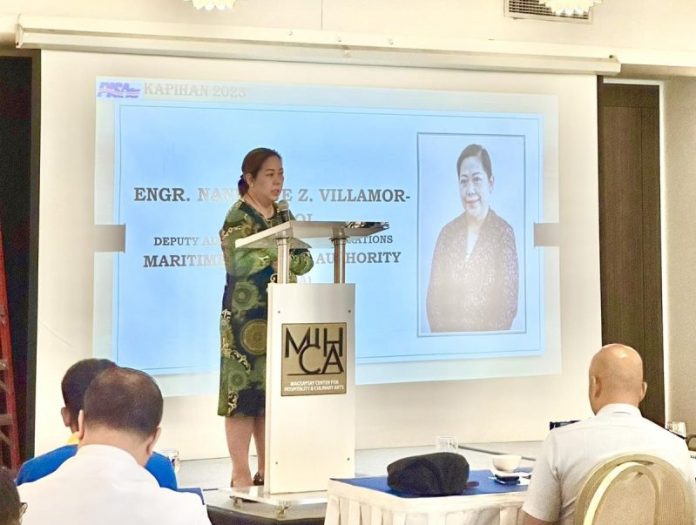
-
The Maritime Industry Authority is eyeing incentives for shipowners and shipbuilders as it reviews the Domestic Shipping Development Act of 2004
-
Investment incentives under the law expired in 2014
-
Only a few shipowners and shipbuilders also availed of such incentives to begin with, according to MARINA deputy administrator for operations Nannette Dinopol
-
Philippine Inter-island Shipping Association is proposing subsidies for domestic shipowners, just like in other countries
The Maritime Industry Authority (MARINA) is eyeing incentives for shipowners and shipbuilders as it reviews the Domestic Shipping Development Act of 2004 (Republic Act No. 9295).
The incentives under the law, signed in 2004, had a 10-year sunset provision, thus expiring in 2014.
And even when the incentives provision was still in effect, only a few shipowners and shipbuilders availed, MARINA deputy administrator for operations Nannette Dinopol said in a recent forum hosted by the Philippine Inter-island Shipping Association (PISA).
RA 9295 aims to promote the development of Philippine domestic shipping, shipbuilding, ship repair, and ship breaking. The law provides certain incentives to encourage investments in the domestic shipping industry, such as exemption from value-added tax on the importation and local purchase of passenger and/or cargo vessels of 150 tons and above.
While amendment of RA 9295 is part of MARINA’s legislative agenda for the 19th Congress, no bill for such has been filed.
Dinopol said one of the reasons for low availment of incentives, particularly for shipbuilders, is the time it takes to apply for incentives–one to two years before approval.
“We’ve been always talking about ease of doing business but actually it’s not happening on the ground,” Dinopol noted.
She noted this is why shipowners prefer to have their ships constructed abroad as delivery is faster.
Also part of MARINA’s legislative agenda is the enactment of a Shipbuilding Ship Repair Development Act. House Bills 4335 and 8374 proposing the Shipbuilding Development Act are both pending before the Committee on Trade and Industry.
PISA president Mark Matthew Parco, in an interview with PortCalls at the sidelines of the forum, said the association is proposing subsidies for domestic shipowners, just like in other countries.
“The type of subsidies could be discussed, but it has to be something that will help,” he said.
Parco added: “I like the Japanese model the best. They identify the type of ship that is needed, they give subsidies to the ship owner to build, but they require that the vessel be built in Japan. That can be done here and we can support local shipyards.”
Currently, shipowners get incentives when they buy vessels overseas, Parco noted. Those who buy locally get hit with taxes instead.
To illustrate unusual circumstances faced by shipowners buying vessels in the Philippines, Dinopol narrated the experience of a shipowner who had to export first the vessel it had built inside an economic zone then import it back to the Philippines just so as to avail of incentives.
PISA earlier suggested the grant of fuel subsidies and fuel tax exemptions to domestic shipping lines. Fuel is the biggest component of operating cost (up to 50%) in domestic shipping. Domestic shipping lines are also levied duties and taxes for fuel used. – Roumina Pablo
RELATED READ: Domestic shipping lines present laundry list of concerns to transport agencies




